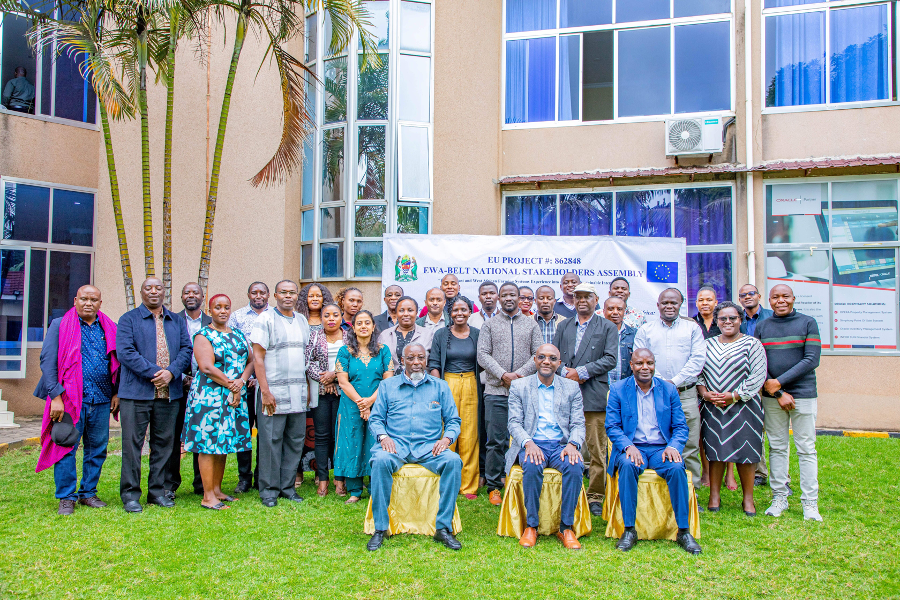EWABELT showcased at the UN-Habitat Expert Group Meeting on Intermediary cities in Jinja, Uganda
- OCCAM - Observatory on Digital Communication

- Apr 30, 2024
- 2 min read

April 17-19, 2024. Jinja, Uganda. On the occasion of the UN-Habitat Expert Group Meeting on "Optimizing the Potential of Intermediary Cities for Urban-rural Synergy and Territorial Resilience in East Africa", OCCAM was invited to participate highlighting the relevance of promoting digital solutions to bridge the urban-rural gap, with particular attention devoted to the African continent.
The Covid-19 pandemic has only exacerbated the already exisiting health, socio-economic and food-security challenges that many countries and communities in sub-Saharan Africa are still called to cope. According to UN-Habitat, "cities large and small, rural villages and towns have faced the increasing impacts of climate change, economic and supply chain instability, pressures from migrants and refugees, land degradation and biodiversity loss, among other severe challenges. Food insecurity and malnutrition are increasing at the intersection of these challenges".
On these premises, OCCAM showcased the EWABELT Project (GA 862848), funded by the European Commission under the H2020 Program, as an exemplary international research and action effort addressing food-insecurity related issues in six countries of East - Kenya, Tanzania and Ethiopia - and West - Burkina Faso, Sierra Leone and Ghana - Africa. The focus of the intervention was digital technologies and how the project is advancing research on that front, which has also been discussed during the 23rd Infopoverty World Conference "AI turmoils digital processes: how to guarantee human rights and provide e-welfare for all" at the United Nations in New York on April 12, 2024 organized by OCCAM (press release).
Responding to the call launched by UN-Habitat to"review technical resources for leveraging Social and Technological Innovation for Sustainable food systems and development", Martina Baldessin - Programme Coordinator at OCCAM and Communication Manager within the EWABELT Project - presented the ICTs tools the project is developing, namely the PlantHead Platform and Q3 qPCR, pooling together research on traditional and innovative strategies to enhance knowledge and practices exchange at local, national and international levels with regards to neglected underutilized crop species, sustainable soil management, land recovery, sustainable water management, agri- livestock and plant protection.
Particular attention was dedicated to the PlantHead Platform designed by OCCAM and available to farmers, experts and research centres for remote plant testing and disease detection. Its primary aim of fostering real-time diagnosis and eco-friendly crop protection to address food insecurity challenges in the Farmers Field Research Units of the Project was highlighted as a promising means enriching the users with adequate solutions to persistent agricultural issues in a time-efficient, user-friendly and inexpensive way.
The research endeavours and activities the EWABELT Consortium is carrying out in the rural contexts of East and West Africa are valuable contributions to address urban-rural synergies, thus furthering the quest for social and economic development of rural, urban and intermediary communities.
Among the expected outcomes of the Expert Group Meeting, we expect to receive:
Two normative products to be reviewed and validated on digital solutions for the food system and inter-city cooperation guide
Policy recommendations
Improved Knowledge Exchange
Networking and partnerships
Stay tuned and follow us to discover more about our efforts in promoting fair, inclsuive and sustainable development!
**
For media inquiries, please contact:
OCCAM - Observatory on Digital Communication





Comments